13 Nov Markus Schulz: We Are the Light [Exclusive Interview]
In This Article (Click on a section to quickly go to it)
Your new album We Are the Light is out now. What makes this one different from your previous releases?
When I began working on the album, my vision was for it to essentially be a second chapter of Watch the World but also to build upon that and take it to the next level.
Watch the World had the mindset of writing solely about the outside – the fans, the travel, and reflections on what I see. When it was released and I was doing the subsequent tour, the world was in a very bad place. It was when politically there was upheaval in various countries, and even more so, there was a tragedy; the one which hit close to home the hardest being the Pulse nightclub shootings in Orlando.
It triggered my introverted tendencies, which led to the themed concept of The Nine Skies album under my Dakota alias. The process of creating that was gut-wrenching and emotionally very draining because I had to reach down deep inside of me to express how I was feeling. I’m not a great talker, I’m not a great writer, so the best way I can express myself possible is through music. I never could have begun working on We Are the Light, had The Nine Skies in particular never existed.
I would describe We Are the Light as coming from the same place as The Nine Skies but with a determined approach of embracing the good in life.
What is the overall message you want your fans to deeply understand with the album title We Are the Light?
When I was writing the track with Nikki Flores, it became apparent quite quickly that “We Are the Light” needed to be the paramount message regarding the album’s theme.
There is a line in the song that says, “What if we pray to the earth and not religion?” To me, that sums up everything with current events. We all need to get along and enjoy the time we have on earth together.
Ironically, when we went to shoot the video for “We Are the Light” in the Redwood forest earlier in the year, we hadn’t forecasted doing it in the middle of a blizzard. But the end result was stunning, and the fans have been so kind in their feedback towards it.
My goal with the album is to share an important message with the fans and community, and it was something demonstrated evidently at EDC in Las Vegas back in May (on the back of the shootings from last year).
What hit me about that incident was the resilience and determination of the responders and the residents of the city. This was exemplified further with EDC back in May. At that point, I realized that, ok, today’s world isn’t really that good right now. But, the determination you see from the people to lead by example and be the shining light to move things forward, I think that is a powerful mantra that we can embrace together.
Which track off this album seemed to easily, effortlessly, and naturally come to fruition? Was there something you did that day to get yourself into that flow state? What can you contribute to it?
This will sound like a contradiction – the idea of the song at the outset was difficult, but when the moment of inspiration hit, the creation became quite easy.
During Miami Music Week, Arny from Black Hole told me about his plans to revive the legendary In Search of Sunrise compilation series, and it was such an honor to be asked to mix one of the discs.
When you listen back to the history and prestige of those ISOS compilations, the expectation and pressure is there for you to deliver something worthy and fitting of its legacy. So for my mix, I knew that the final track, the crescendo, had to be a big spine-tingling, emotional piece.
But then one day, a few weeks into working on the ISOS project, Adina and I were at home, sitting in silence and simply looking out at the ocean. It was so inspiring that we went to the studio and laid down what would become “Breathe Me to Life.” It isn’t a particularly complicated track – even the lyrics are just two lines long – but it carries that wave of emotion that I think the In Search of Sunrise journey can end on.
It also has the double effect of playing an uplifting role in the We Are the Light album too.
What was the inspiration behind the track “Road of no Return” from We Are the Light with Omnia and Seri? What was it like finally getting to work with Omnia?
My relationship with Omnia goes back almost a decade. We first came in contact when working on the Toronto ’09 compilation, and when reaching out to artists to acquire material for it, he sent me his track “Stick in Monday.” And he was responsible for what has undoubtedly been one of the most popular releases we have ever had on Coldharbour Recordings with his track “The Fusion” from a few years ago.
I had actually commissioned him to work on a remix for one of the tracks from the Watch the World album, but he just couldn’t get it quite right. So at that point, we said that we would take the time and effort to collectively do something together.
Seri has been a well-received vocalist throughout the years in my sets, working along with the likes of not only myself but Nifra as well. With that experience, I knew that her voice would dovetail well with Omnia’s core sound, so my role was adapting my own sound and adding to the layers that both would respectively provide.
Following your remix of Capital Cities’ “Safe and Sound” your new track, “Upon My Shoulders,” features Sebu from Capital Cities. It has a pop-rock sound that’s delightfully infused with uplifting, positive, and sun-drenched vibes. Were the lyrics inspired by you always seeing people on each other’s shoulders at festivals?
It was, and the primary vision of that was based on my experiences at the Tomorrowland festival in Belgium.
I would have to say that out of all the tracks featured on the We Are the Light album, this was the most difficult to finish.
The original idea for the song was actually conceived a couple of years ago during a writing session Ferry Corsten and I held when working on material for New World Punx. I wanted to write a song about being up on stage and connecting with the audience. We were trying to visualize it; originally the song was called “Carrying my girl up on my shoulders,” but in the end, we just couldn’t nail the idea down and ended up scrapping it.
But when the time came to work on the We Are the Light album, I still felt in my mind and heart that there was an important message in that song, particularly after performing the Daybreak Session on the main stage at Tomorrowland last year.
I had become friends with Sebu, and I visualized his voice singing the song. I sent it to him asking for his thoughts on the track. He sent it back and he changed the lyrics to “Carrying you upon my shoulders.” And all of sudden, everything made sense.
What is the biggest mistake you see up and come trance producers make when trying to make it in this industry? What should they be doing instead?
There are two which stand out to me – and you can apply this to many DJs in whatever electronic genre they prefer – not standing out with your productions and not learning how to DJ.
If you examine the entire electronic dance music bubble, it’s a copycat scene. One person produces something in a style that’s amazing and groundbreaking, and if it’s successful, then you have a hundred copies of the same thing within a week. The key is to be the innovator.
One of the unfortunate consequences of the scene is that if someone does land a huge overnight hit, they are thrust into a grueling tour almost immediately, and in many cases, they are effectively learning how to DJ while on the job. It is why I continually stress the importance of building up your experience of DJing, so you have that to fall back on when you achieve your breakthrough.
However, what is vitally important about DJing live is understanding the surroundings and audience in which you are playing to. On so many occasions, you will see a superstar DJ with the one predetermined set, and they will play all the same tracks in the same order anywhere, whether they are on the main stage to 30,000 people at EDC in Las Vegas or playing at an intimate underground club in Buenos Aires. That is not what the art of DJing is about.
Ultimately, you have to be adaptable to the environment in which you play. Yes, definitely prepare beforehand – work on your edits, reconstructions, and mashups, and have a rough idea of the first three or four tracks you plan on opening your set with. But, if the crowd isn’t reacting the way you want after that opening 15 minutes, what do you do? So, it’s important to amass your library and have options.
Which of your tracks has been your favorite mashup so far this year?
There are a couple that stand out.
I did a remix of P!nk’s “What About Us” for EDC, but when combining it with the classic Vincent de Moor track “Fly Away,” it sets the crowd absolutely wild.
The recent one that has shocked a lot of people is one where I took Ariana Grande’s “No Tears Left to Cry” and mashed it up with Above & Beyond’s “Red Rocks” and added some extra sounds of my own on top. I don’t think people would think that her voice would work so well over a trance track, but it does.
That’s why I think if you were to collaborate with a big pop artist like that, the interesting challenge would be to bring them into your world rather than the other way around. If I was collaborating with Ariana Grande, for instance, I would take her to Stereo in Montreal, let her feel the vibe of that night for 10 hours, go straight to the studio, and produce something based on the experience.
As a DJ, you’re notorious for playing open to close sets. Does your love for longer sets come from your love of some of the DJs you experienced growing up like Danny Tenaglia?
I believe that playing an open to close solo set is the best method in demonstrating how beautiful the art of DJing can be.
Danny Tenaglia has been a tremendous inspiration towards the solo sets because he demonstrated the ability early on to take people on a journey throughout different dance music genres in one night. One of the greatest moments I ever experienced was watching him perform at Space in Miami back in 2001. I was standing on the dancefloor – Carl Cox was to the left of me and John Digweed to the right – and we were all in awe of the vibe Danny was generating.
Despite never meeting him or seeing him play live, I would hold Larry Levan in the same esteem. When reading magazines about his legendary sets at Paradise Garage in New York, I would listen to his mixtapes, close my eyes, and imagine I was there at the venue.
One of the ironic quirks about our scene is that the more successful you become, your set lengths become shorter and shorter. One of the big breaks I had in my career was being discovered for a nightclub in Arizona called The Works where I held a seven-year residency and played open to close every Friday and Saturday night. It was there where I could gain experience in reading a room, make programming mistakes, and learn from them.
When my career had become established enough that I could approach booking agents and venues with ideas, that was when I wanted to demonstrate my own tribute to the art of DJing with the open to close solo sets. Internationally, they have been going for around a decade now and have had the privilege of cementing legacies at some of the world’s greatest venues such as Stereo in Montreal, Avalon in Los Angeles, Ministry of Sound in London, and Amnesia in Ibiza.
My hope is that through these solo sets I can inspire the future generation of DJs in the same way Danny Tenaglia and Larry Levan inspired me.
You’ve built a loyal fanbase because you’ve always stayed in your own lane instead of chasing the latest trends. What other advice do you have for aspiring artists who are also looking to build a long-term loyal following?
The most important rules are to follow your heart and try to make something that sounds unique and identifiable.
So for anyone starting out, identify who or what inspires you and study their music. Study their DJ sets and how they’re built and do the same with their productions. And the best way to make your own sound unique is to take certain influences from multiple DJs and producers and create a hybrid of them that you can call your own.
And, if possible, take the opportunity to DJ when and where you can. It doesn’t matter if you’re playing to five people in a coffee shop, you’re still learning; you’re reading an audience and reacting to the atmosphere. If you have a house party and you’re DJing, you’re reading the vibe of the party, and all of that knowledge builds up with experience.
What’s it like getting to work with Ferry Corsten as a duo in New World Punx? Do you have any collaborations with him on your new album or anything coming out soon?
It’s a privilege because to me Ferry is the greatest producer in our scene, and to be able to be in his company in the studio while that creative mind of his is in his element is inspiring. I have told him so many times that I wish I could transplant part of his brain into mine!
Ferry helped out with some of the writing on We Are the Light, particularly on “Upon My Shoulders” and “Heaven.”
We are still very close, but our schedules and studio requirements for the past few years have meant that we haven’t had the time to meet up in person as much as either of us would want. We Are the Light is my third album in three years, following Watch the World and The Nine Skies as Dakota. [During that time] Ferry was focused on his Gouryella revival, the Blueprint album, and his ongoing Unity project. And he is also doing some film score work, which I can tell you is going to blow people’s minds.
The next thing for us is to finally nail down a collaborative track for Ferry’s Unity series, and that will most likely be around the beginning of next year. We both absolutely want to bring New World Punx back, but it’s a matter of designing a brand new show with all our music, which you can imagine will be quite time-consuming.
In saying that, I miss being on the road with him and standing beside him in the DJ booth.
Art and music had a major impact on your life as a child. What struggles did music help you get through the most when you were growing up?
I was born in Eschwege, Germany, and my step-father was in the military. Our relationship at times was like oil and water; you had this creative-minded soul in me, and my dad’s ethos was in logic and discipline. It took me quite some time to realize it, but I look back now and I’m so thankful to him for instilling the work ethic and discipline in me because, ultimately, for this career, these are vital components to compliment the art.
Because of his career, however, it meant that we would be moving around various army bases in Germany, and the consequence meant that any childhood friendships I could establish were pretty much immediately wiped away. This was of course prior to the days of cellphones the internet and online messaging, so staying in touch was impossible. It’s actually one of the things in life I am quite jealous of others about – there are people I know who have friendships that have lasted all the way from childhood; sadly, I have none of that.
However, one of my most cherished moments was when I discovered the magic of radio for the first time. I used it as a means of escape and would spend night after night getting lost in the music. It is why I still adore the medium of radio today and why my Global DJ Broadcast radio show is very important because it is my way of reaching out and giving back to the people in the world who are going through difficult personal times. The one thing you can say about the radio is that it is always there, any time of day or night, and you don’t even have to say hello or goodbye.
At the age of 13, my family immigrated to the United States, and it was a total culture shock for me, particularly since English wasn’t my first language. So the radio was there for me again when I needed it the most. When the weather was overcast, I was able to pick up local college stations through the radio where they were playing more interesting music, and that is when I began to listen to mix shows and start an appreciation of learning the layers of the music.
I then developed a love for breakdancing, and along with the other outcasts and misfits at school, this is where we bonded, trading mixtapes and putting on shows. It eventually led to the idea of hiring a venue to throw a big event with the idea that we would all take turns on the decks. But on the night itself, everyone else got cold feet, meaning that I wound up DJing for the entire evening. On top of how liberating that felt, the owner of the hotel venue we hired was seemingly impressed enough to offer me a job as a DJ.
It was then that I knew definitively that my purpose on this earth was to do this. Had it not been for the love of radio, who knows what I would be doing right now?
What is the hardest part about being on the road when you are away from your home in Miami for months on end? How has having Adina, your fiancé, on the road with you impacted your creativity, mental health, and overall well-being?
I guess the biggest thing you miss is the comfort of being able to sleep in your own bed. One of the reasons I set up home in Miami was because I love warm weather, so when you have those cold winter weekends when touring Europe, it makes me long for the better temperatures of home.
The travel involved with this job is very difficult, and I think nowadays you have to be sensible and have more than one home base. That’s why when my international career began to pick up over a decade ago, I made the decision to get an apartment in Berlin, so if I happen to have successive weekends touring in Europe, it drastically cuts down on travel time to Miami and back.
Having Adina on the road has honestly been the best thing for me in all the ways you describe. I used to very much have a mundane routine on the road of the airport, hotel, club, hotel, airport. But now with her, we plan activities to explore the cities we visit when on the road for a long period. I couldn’t ask for a better travel companion.


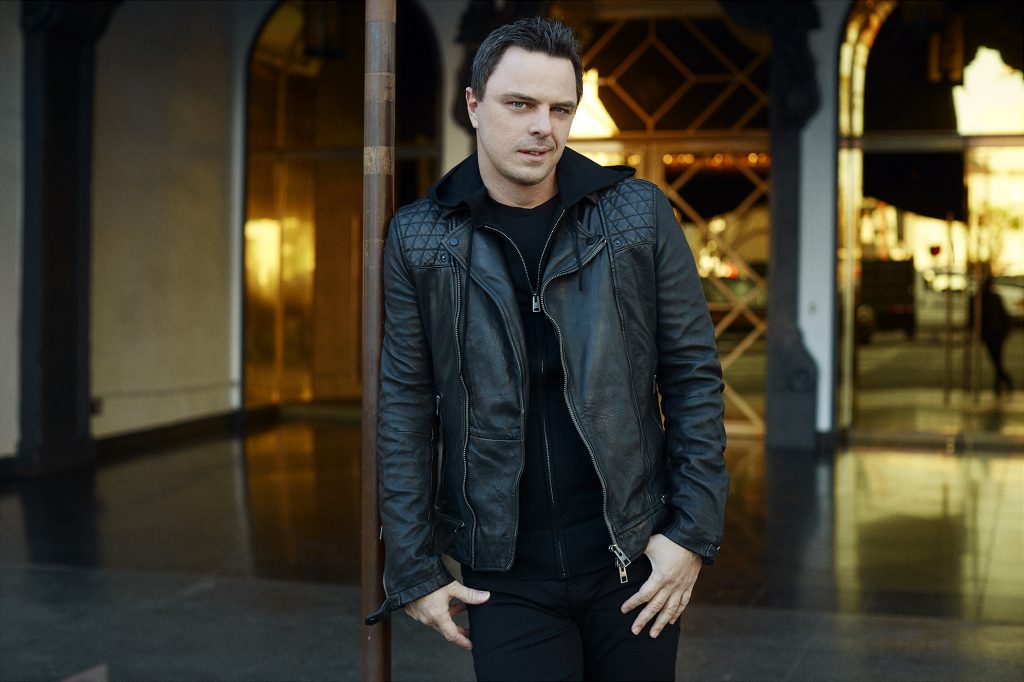

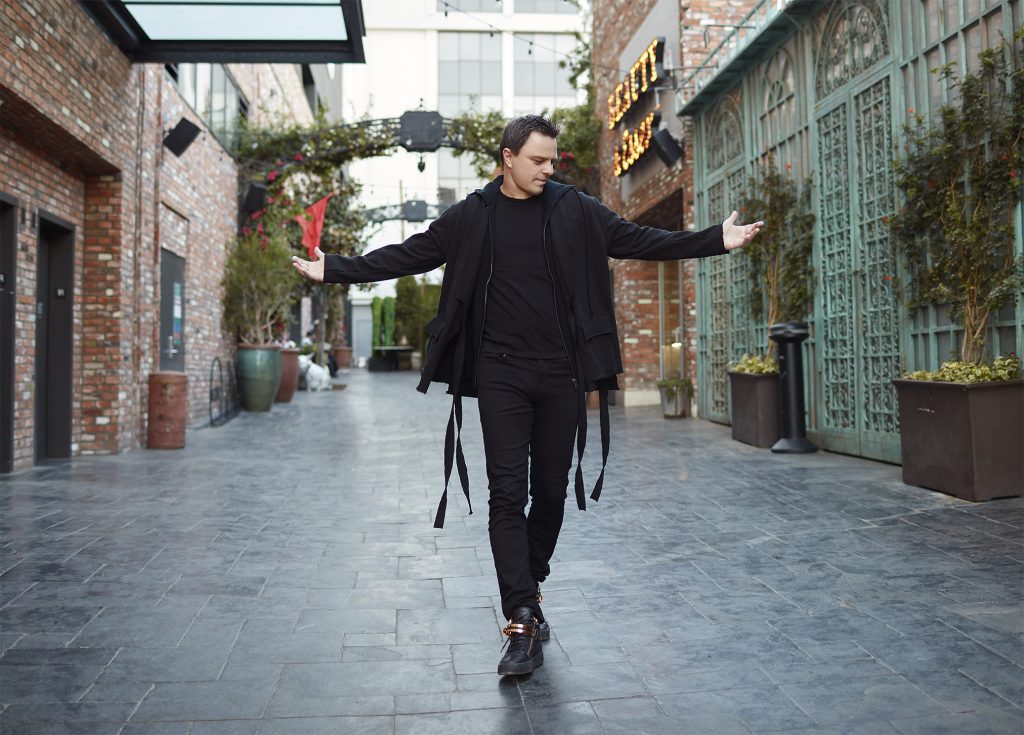
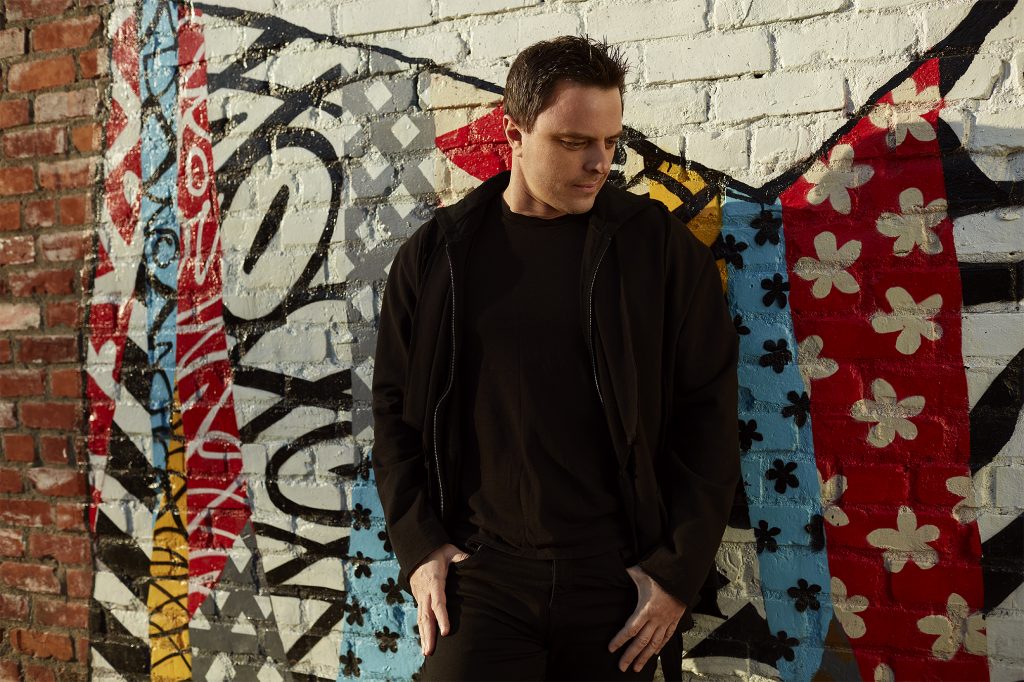
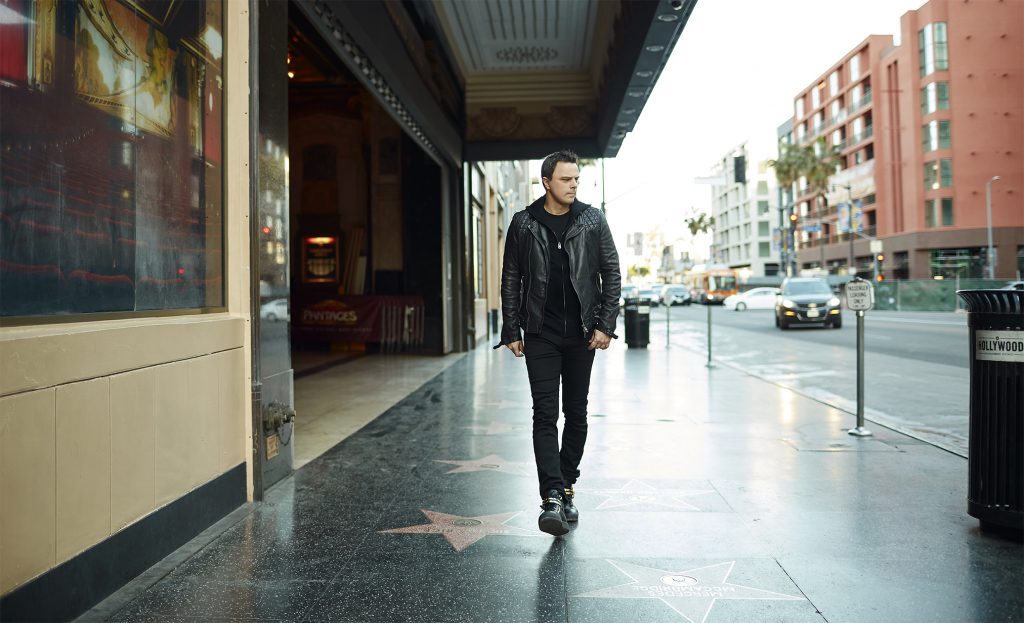
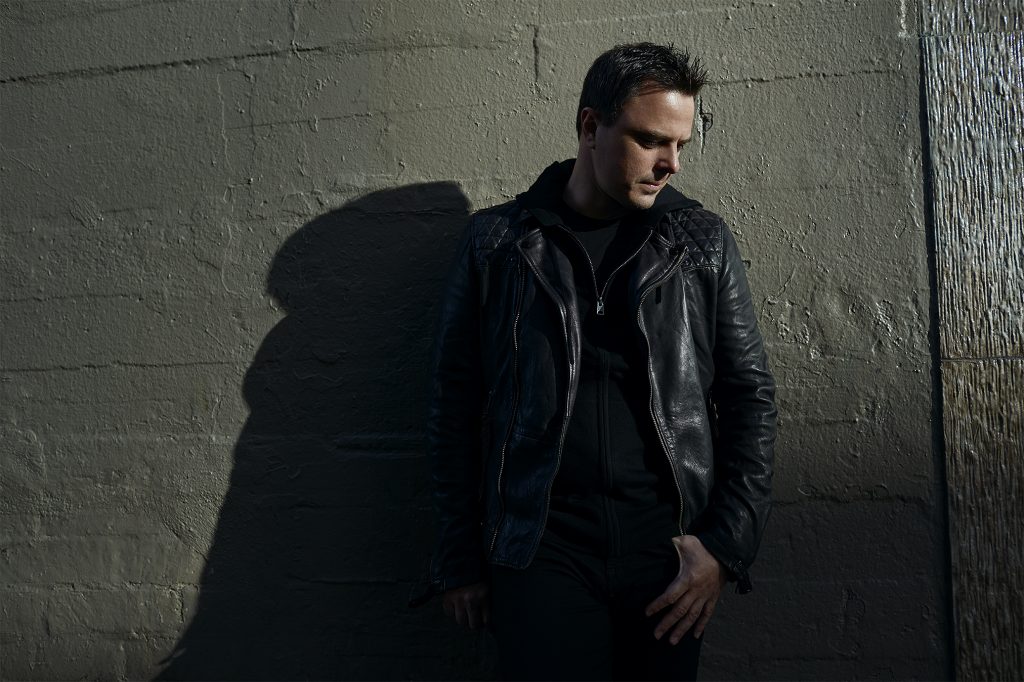
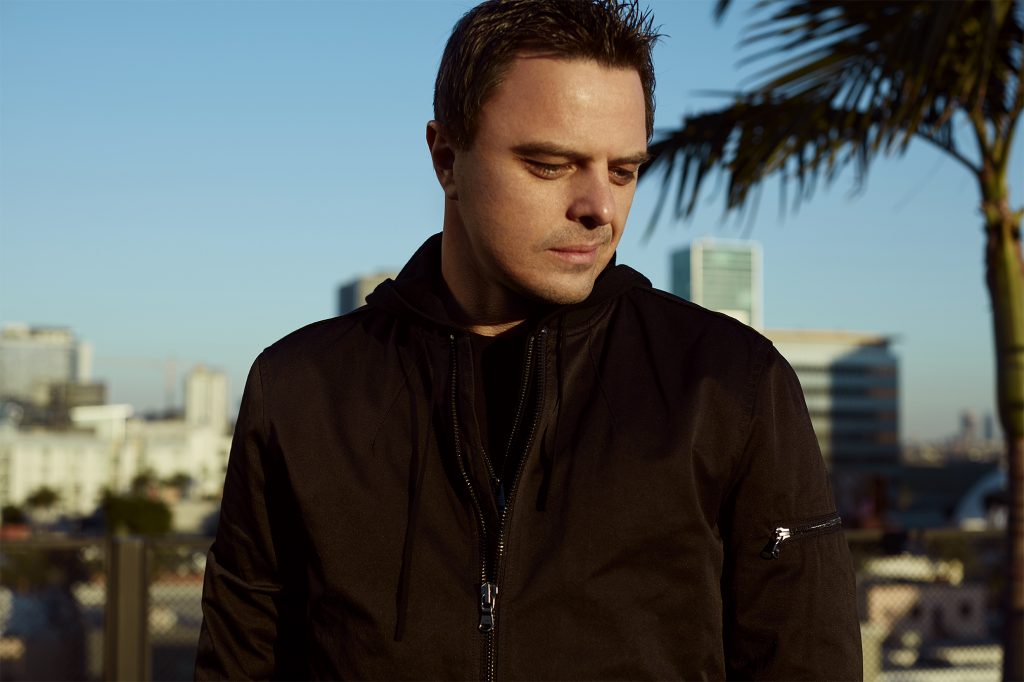
No Comments